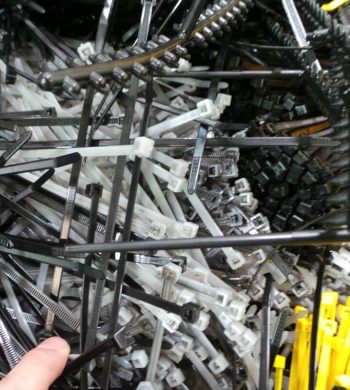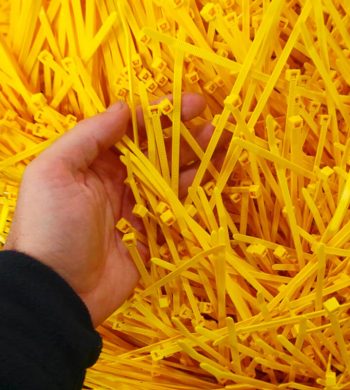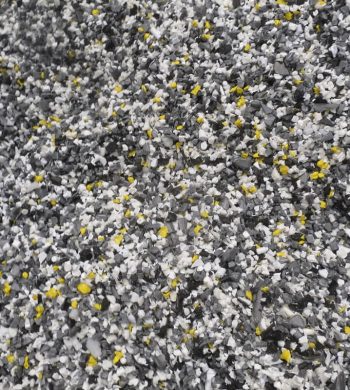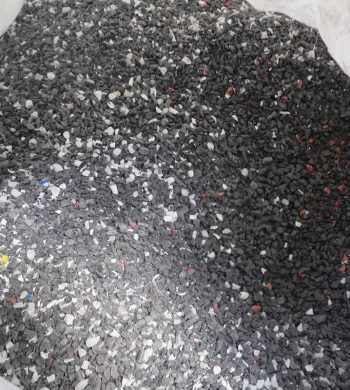PA, a macromolecule also known as polyamide, or more commonly as its brand name ‘Nylon’, is a semi crystalline, synthetic thermoplastic, created via step-growth polymerization. Its low density, thermal stability, strength and impact properties mean Nylon is an extremely popular and versatile material, lending itself to multiple applications and industries. It is commonly found as carpet, rope, thread, packaging and clothing.


PA Cable Ties
Injection Moulded Cable Ties Scrap
Lumps or Purging are also acceptable


PA Regrind from Injection Moulding
Nylon is often used in the Automotive industry for various car parts
PA6, PA66 are preferred
Nylon is used to reinforce the rubber in car tyres and injection moulded for auto-motive parts, mechanical equipment and industrial valves. It is also used as a fibre in fishing line, clothing and netting. Its high melting point and heat resistance has led to it being introduced as an alternative to metal components in high-friction environments and machinery.
PA lends itself well to the plastic recycling process. It is chemical and water resistant, easy to wash and long-lasting, meaning it’s well-placed to be reprocessed numerous times, aiding the creation of circular economies and closed-loop supply chains.
However, these properties also mean that once it has been discarded by other means, the material remains in the environment for a long-time. Nylon alone accounts for 10% of ocean debris, perhaps unsurprisingly, in the form of fishing nets.
Nylon, or PA, is grouped with under plastics, including acrylic (link) and polycarbonate (link?) under resin identification code 7.


.png)

